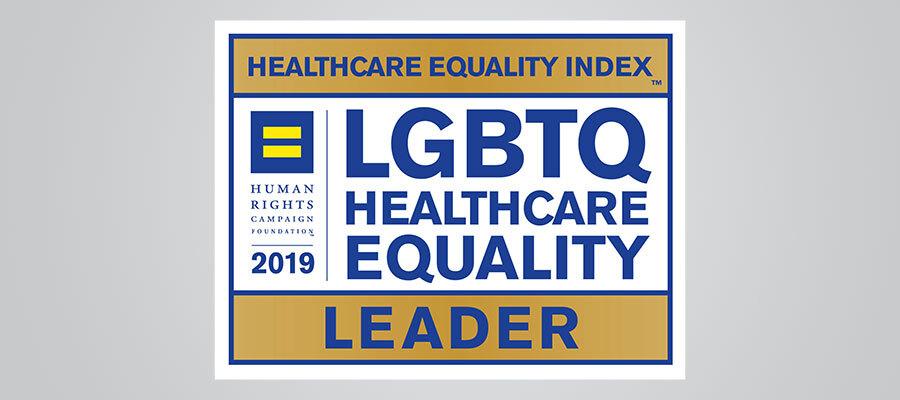Speaker recommends policies and practices to make health care organizations more LGBTQ inclusive

Members of lesbian, gay, bisexual, transgender and questioning communities are more likely than their heterosexual peers to experience health threats such as major depression, bipolar disorder and substance use disorder, the Centers for Disease Control and Prevention says.
Hospital and health system leaders can help to close this gap by becoming more inclusive of LGBTQ populations, said Tari Hanneman, director of the Human Rights Campaign's (HRC) Health Equality Project, during a webinar last month hosted by the AHA’s Institute for Diversity and Health Equity.
Hanneman advises health care leaders to begin by taking the Healthcare Equality Index (HEI) survey, an HRC online benchmarking tool that evaluates health care facilities' policies and practices related to the equity and inclusion of their LGBTQ patients, visitors and employees.
Specifically, the HEI’s 2018 criteria encourage health care organizations to:
- Protect LGBTQ patients, visitors and staff through organization-wide equal-treatment policies.
- Cultivate inclusive workforces by providing LGBTQ-inclusive employee support and benefits and by training staff to be inclusive of LGBTQ populations.
- Demonstrate progress toward inclusion on LGBTQ patient care and support.
- Demonstrate public commitment to the LGBTQ community.
Organizations don’t have to meet all requirements of the HEI to make an impact, Hanneman says. Certain aspects of the survey, such as EHR data implementation, can be complex, and some parts of the survey won’t apply to everyone.
“What's important to remember is that there's a wide range of policies and practices that we recommend, and you don't have to have every single one in place,” she said. “You could go through and pick the ones that are most relevant to you [and are] easiest for you to implement.”
For example, Hanneman encouraged health care leaders to:
- Adopt a patient non-discrimination policy that includes sexual orientation, gender identity and gender expression.
- Provide hospital intake forms that allow patients to identify LGBTQ, or as LGBTQ parents of patients who are minors.
- Adopt a policy that provides same-sex partners with the same hospital visitation access as spouses and next-of-kin.
- Adopt a policy that provides same-sex and opposite-sex couples with children the same hospital access to visit their children.
- Adopt a policy stating a commitment to recognize and respect the advance health care directives of same-sex couples and LGBTQ patients.
- Adopt a policy of counseling patients on their right to designate their domestic partner or someone else as medical decision maker when advising them of advance directive rights.
- Adopt a policy stating a commitment to recognize and respect the decision-making rights of same-sex couples with children, giving them the same rights as opposite-sex couples regarding medical decision-making for their children.
- Create a LGBTQ-inclusive cultural competence training program and require all employees and volunteers to take part.
- Adopt an employment non-discrimination policy that includes sexual orientation, gender identity and gender expression.
- Provide health insurance coverage to employees’ domestic partners and non-biological children.
You can learn more about the HEI here.
View previous webinars in this series here.

